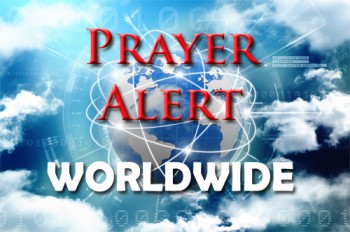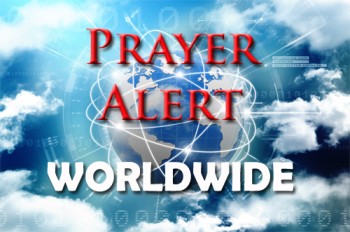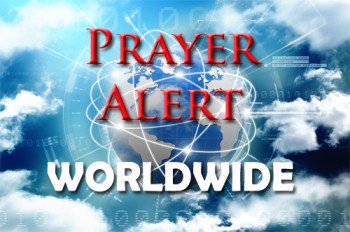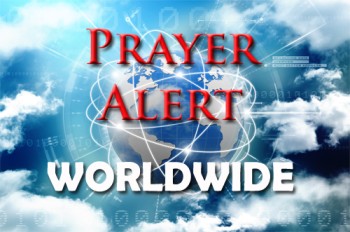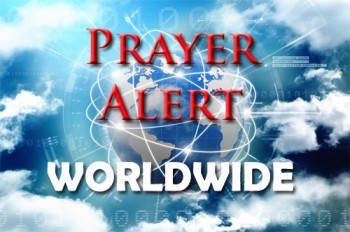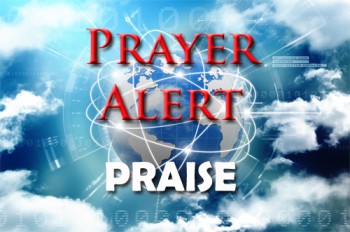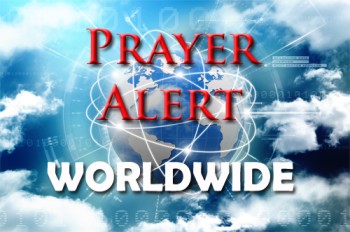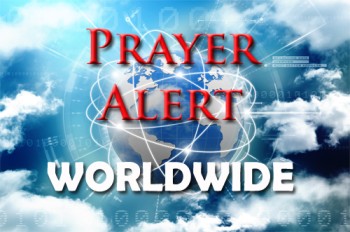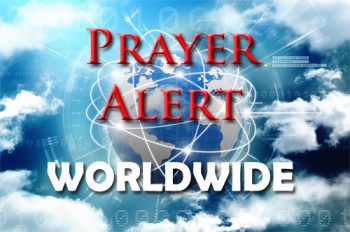Displaying items by tag: Latin America
Argentina: court suspends president’s labour rule changes
Javier Milei, Argentina's new president, encountered a setback on 3 January when a court suspended labour rule changes he introduced in December. The decision came in response to a legal challenge from the largest labour union, which argued that the changes infringed workers' rights. Milei's decree included extending job probation from three to eight months, reducing severance compensation, and allowing the possibility of dismissal for workers participating in blockades. The court ruled that the administration had overstepped its authority in implementing these changes by emergency decree, bypassing the legislature. Since taking office in December, Milei has devalued the country’s currency by 50%, cut transport and energy subsidies, and promised to downsize the state workforce - all measures aimed at addressing poverty and high inflation.
Argentina: 13 dead after intense storm
An intense storm in Argentina left at least 13 people dead and others injured in the southwestern port city of Bahía Blanca. Winds reached up to 140 kilometres (87 miles) per hour in the city on 16 December, and by the next day at least 300 people had been evacuated. The city council said that the situation caused by the storm was a catastrophe, reporting multiple injuries, some extremely serious. The mayor declared three days of mourning, saying: ‘I want to reaffirm our solidarity with the families and loved ones of the 13 deceased people.’ He reminded citizens of the importance of keeping safe by staying home, adding: ‘We are still in an emergency situation, with electrical risk and risk of falling trees and structures.’ The city’s emergency teams received over 100,000 calls about downed trees, power lines and signs, among other damage. President Javier Milei said that his cabinet is working with provincial and municipal authorities to help the victims and respond to the damage.
Nicaragua / Guyana border dispute is reignited
Guyana's vice-president, Bharrat Jagdeo, has issued a strong warning that his country will defend itself ‘by all and any means’ amid growing concerns that Venezuela's president Nicolás Maduro may attempt to annex a portion of Guyanese territory, particularly the mineral-rich Essequibo region. The current borders were agreed in 1899 after international arbitration. Guyana, a small nation, has historically relied on diplomacy and international law but is now exploring defence cooperation with allies, including the USA. Its army, with only 4,000 active personnel, would potentially face Venezuela's well-equipped, Russian-backed forces of over 350,000. Jagdeo also expressed concerns that the decision by the USA to ease sanctions on Venezuela may have emboldened Maduro in his threats. The border dispute has intensified since oil was discovered off Guyana's coast in 2015. Many believe that Maduro is seeking to shore up support domestically before the elections in 2024. Washington expects him to ensure a ‘free and fair’ vote as part of the sanction relief deal.
Ecuador: new president sworn in
In October we prayed for the presidential election in Ecuador. Now millionaire Daniel Noboa has been sworn in as president, marking a significant shift in the country's political landscape. A businessman with no prior political experience, he surprisingly won the snap election which former president Guillermo Lasso called to avoid possible impeachment. He will serve only 18 months, the remainder of Lasso’s term. Once considered one of the safest countries in the region, Ecuador has seen violence explode in recent years; there was an unprecedented increase in bloodshed, and drug violence has led to some 3,600 murders so far this year. Noboa has said he will target the violence by tackling unemployment, but also implement a state of emergency, suspend some citizen rights such as freedom of movement, and deploy the military to the streets. There is a considerable sense of uncertainty and anticipation surrounding his presidency.
Argentina: election outcome difficult to predict
Opinion polls are showing an increasingly tight race between Peronist economy minister Sergio Massa and radical libertarian Javier Milei ahead of a runoff ballot for president on 19 November. The two candidates offer polarised visions for the embattled Latin American country, the region's third largest economy, a major supplier of grains, beef and lithium, but also the largest debtor to the International Monetary Fund (IMF). One recent survey showed Massa ahead with 42.4% of the likely vote against Milei on 39.7%, his lead more than cut in half versus the previous poll in late October. He is still seen as the candidate to beat, but Milei has gained ground, winning the backing of conservative Patricia Bullrich, who finished third in the first-round vote, and her powerful ally, former President Mauricio Macri. Significantly, with some 18% of those polled remaining unsure, the outcome is hard to call.
Mexico: people hear Gospel for first time
Two indigenous families in rural Mexico, previously unaware of God's existence, were profoundly impacted by audio recordings of the Gospel of Mark in their tribal language. This led them to embrace Christianity and attend church services. They said that listening to the audios helped them understand Jesus' purpose on Earth, inspiring them to accept God into their hearts. Some members had been suffering from an incurable disease but attributed their complete healing to their newfound faith. Despite a history of tribal beliefs, one family member thanked God for His Word in their language and the worker who shared the recordings. This success reinforces the importance of continuing translation efforts to bring the message of redemption and salvation to people in their native languages. Pray that everyone can access and be transformed by God's Word in the language of their hearts. Various projects, including translating the Book of Jonah, have contributed to this mission, promoting literacy and understanding in indigenous communities.
Venezuela / USA: sanctions to be eased
The USA is easing sanctions on Venezuela after the government and opposition agreed on 17 October to have next year's election monitored by international observers. They also promised to give all candidates access to public and private media, and to guarantee their free and safe movement throughout the country. In addition, the two sides have agreed to update the voter registries, to ensure that the millions of Venezuelans who have emigrated can exercise their right to vote. But the opposition and the government still disagree on whether the agreement allows for the exclusion of opposition frontrunner María Corina Machado. US sanctions will be eased on Venezuela's oil, gas and gold sectors, but other sanctions imposed over the suppression of protests and the erosion of democracy remain in place. Secretary of State Antony Blinken also called for the release of ‘all wrongfully detained US nationals and Venezuelan political prisoners’.
Guatemala: continuing protests after presidential election result
Tension is rising in Guatemala, where protests by supporters of president-elect Bernardo Arévalo have run into a second week. They are demanding the resignation of attorney-general Consuelo Porras, who they accuse of plotting to prevent Mr Arévalo from taking office. He won the presidential election by a landslide in August, but just hours later his party was suspended by the supreme electoral tribunal - a move widely viewed as an attempt to stop Mr Arévalo, a political outsider who has campaigned against corruption, from being sworn in as planned. Ms Porras argues that the party was not properly registered, but critics point out that she only launched her investigation after Mr Arévalo secured a spot in the run-off. The protests intensified last week as demonstrators blocked key roads across the country, causing fuel and food shortages and paralysing traffic. The outgoing president, Alejandro Giammattei, condemned the blockades, and asked Mr Arévalo to sit down with mediators sent by the Organisation of American States (OAS), to ensure a peaceful handover of power.
Ecuador: last debate before run-off presidential election
Left-leaning Luisa González and centrist Daniel Noboa have faced each other in the last debate before the run-off election on 15 October. The debate gave both candidates a platform to address long-simmering issues in the country. The economy remains Ecuador’s Achilles heel: at the end of 2022, debt alone accounted for 57 percent of the GDP. The other major issue facing the candidates is crime. Ecuador, once one of the most peaceful countries in Latin America, is now on track to become the third-most violent country in the region. In August, that violence spilled over with the assassination of presidential candidate Fernando Villavicencio in Quito. Since then, candidates have been wearing bullet-proof vests. Noboa is ahead in the polls, but many Ecuadorians have not yet made up their minds about who to vote for.
Venezuela: government regains control of prison
The Venezuelan government has announced that it has regained control of a notorious jail, which had been controlled by the powerful Tren de Aragua criminal gang. Some 11,000 security personnel stormed the Tocorón prison, which had been run by inmates for years and had hotel-like facilities including a pool, nightclub and a mini zoo. It doubled up as the gang’s headquarters. From it, Tren de Aragua ruled a criminal enterprise spanning several Latin American countries and reaching as far as Chile. Its members engage in human trafficking, run prostitution rings, and extort migrants. One commentator said that the clearing of the prison did not automatically constitute the end of the gang. ‘Their centre of operations has been closed down, but the leaders of this organisation and its cells abroad can continue functioning’, she said.
